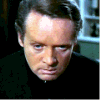This is one of several "anachronistic" songs that appear in the game - songs from the late 20th century that have arranged to sound contemporary to the period. Most of these are actually pretty tough to pick out, since they blend in with the music that is supposed to be contemporary. (I say "supposed" to be, since 1912 is just before the advent of recorded music, so most of the soundtrack was written in the 20's and 30's.) CCR's "Fortunate Son" is turned into a solo gospel song, and "Tainted Love" is stripped of synthesizers and turned into a high-tempo blues.
The original Bioshock was set in 1960 - it takes place in an underwater city that isolated itself from the rest of the world some time before that, so the soundtrack features a lot of swing-era jazz - no time travel involved here. As someone who listens to a lot of music from the time period, I am somewhat conflicted about the way that the series uses these songs. On the one hand, I appreciate the effort to give the game its proper historical context, and I have to admit, if I'm going to have to listen to Bobby Darin croon "Beyond the Sea", I'd prefer to do it at the bottom of the ocean. On the other hand, the developers are counting on that chilling juxtaposition between the placid, innocent music and the terror of being spotted by a Little Sister.
The real predecessor here is of course the opening cinematic to Fallout (and its sequels), which introduces its desolate nuclear wasteland to the comforting tones of The Ink Spots' "Maybe". It's perhaps the greatest cutscene of all time (I actually slightly prefer its sequel, but I'm a huge Louis Armstrong fan). But with the Bioshock games, and Fallout 3, it's veering close to cliche, similar to the way horror movies use classical music, as emotionally moving as it can be, to evoke the apathy and cold intellect of its villains. It cheapens the impact that old music can have, and besides, it's not what I want to be reminded of every time I listen to Django Reinhardt on my iPod.
Perhaps the developers of Bioshock Infinite were sympathetic, since most of the "old-timey" songs featured in the game are not licensed, but original versions. It's worth comparing some of these doppelgangers with the real deal, just to see how difficult it us to recapture the magic of the era. For example, the rather lifeless version of "After You've Gone" that appears in the main menu doesn't hold a candle to Bessie Smith's - admittedly, it's unfair to expect it to.
What is clear is that the performers had fun recreating the warbly, nasally vocals popular among male vocalists of the period - hear the game's version of another 80's classic, "Everybody Wants to Rule the World", which is strangely fun. My own tastes run to instrumental jazz performers, but in listening to these I've had to put up with a fair number of singers of this style. Ladies and gentlemen, I present to you one of the strangest of the bunch, the utterly unique Lillie Delk Christian (who would have long ago vanished into the dustbins of history, were it not for her recordings with Louis Armstrong and most of his Hot Five.

No comments:
Post a Comment